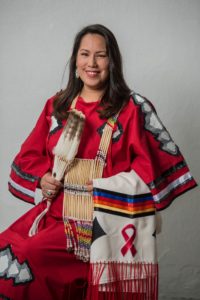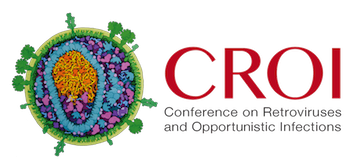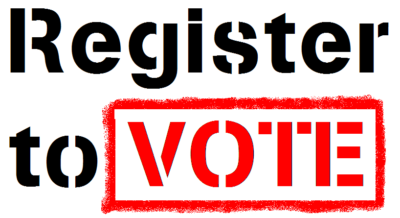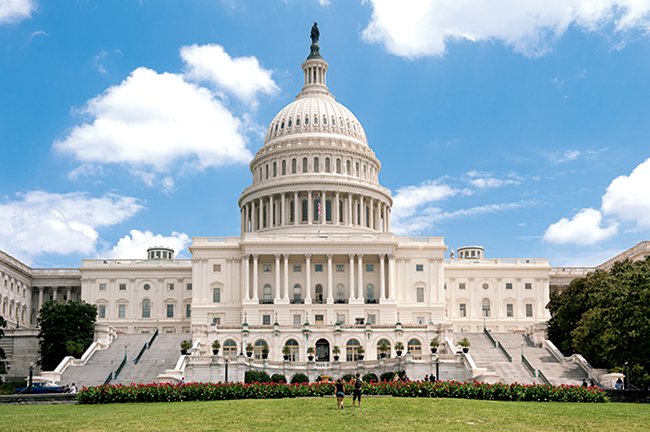By Shana Christensen
There is a saying in Lakota that I really love: “Mitákuye Oyás’iŋ.” It means “All my Relations.” I’m not Lakota. We don’t have that saying in Kiowa, which is the tribe I hail from. Nevertheless, It’s always struck a chord with me. When I think about all the other Natives who are living with HIV, they feel like my family, even if I haven’t met them yet. Native Americans represent some two percent of the US population, yet in many areas of the country, our HIV rates as a race are super high, above whites and in some places, second highest. Scary is an understatement.
Our people have a milieu of reasons as to why we are at risk. Some tribes do an excellent job addressing prevention education. Other tribes have incredible access to care and treatment. I’ve been lucky to have visited lots of reservations over the years to look at their efforts first hand. I’m an urban Native, so I have quality access to care and excellent insurance through my husband and I’ve always been proactive in seeking out the best doctors and care. (If I did not have my husbands’ insurance, I live in an area that luckily works very hard to ensure my access to care with other funds, like the Ryan White Program, a life saver for many.) On the other end of the spectrum, there are tribes that have little to no HIV prevention, no money for HIV care, and no resources to help those in their communities who are HIV-positive. Numbers always affect funding, so smaller tribes are sometimes left by the wayside.
More of my life has been spent living with HIV as opposed to without it. As an adult, it is nearly all I know. I can’t imagine what an HIV free life would look like. Yet alas, this is my path and my journey, so I have buckled down to embrace it and make the best of it. It hasn’t been easy. It’s been incredibly humbling. There are no days off with this illness, much like the relief people feel when a Flu finally goes away. It requires daily attention and diligence. In the early years I was angry and felt betrayed by the whole world, sure that I had been accidentally wronged somehow and undeserved of this punishment. I had also been taught all the common ignorant stigmas about this disease, like many, about what this disease was and who “should” be most at risk for contracting it and thus never saw how I fit the pattern. So I learned the hard way, as they say. Again, humbling to my core. That was a sure fire way to deterioration and loss of energy and life. In those early years, I could feel it, literally.
Then things changed. I can without a doubt say that my traditional ceremonies are what have kept me alive and well. I’ll also agree that both Native American medicine and western medicines are an excellent mix, and are both what have contributed to keeping me alive and well. I have been privileged to have been able to participate in certain traditional ceremonies. Not all of us have access to our tribal ways. Especially for those of us who are Urban Indians, it is often difficult or very complicated to get home. For me, they were utterly life changing. They were the beauty I needed. They were the lessons in acceptance, patience, and gratitude I also needed. Yes, gratitude. It’s funny to think of being grateful to a disease that has the potential to kill you. Yet what I learned was a perspective so unusual and far removed from the traditional western outlook on a disease. It was the opposite in many ways. Most people would hate their disease, or resent it at the minimum. Diseases are annoying and time consuming and expensive and a literal pain, right? I was taught the antithesis. I learned to listen to my virus. I learned to communicate with it, to it. I learned to respect it as a life form. I also said things like I will need it to leave my body one day. But I learned how to not hate it, not resent it and not hate having it stream through my body. I also had to learn to listen to my body. And I learned that my body listens and responds to what I am saying, thinking and feeling about it. If you say you hate your body, your body hears it. If you say your body deserves to be well and healthy, it hears that too. We are not disconnected from our bodies.
In my tribe, they said that diseases come as a speaker on behalf of our Earth mother. This time, they said, she was poignantly saying that she was rapidly losing her immune system. She said her defenses have been harmed and her ability to heal has been impeded. The Elders said we humans have done this to her. They said we humans need to feel what she has felt in order to understand. And so the disease was gifted to the human race. It’s a far from average viewpoint. But it evoked in me a compassion and connection to this earth mother from where we all come from and must live. We cannot escape the need for oxygen from her air, or the need for food that grows from her soils or water that comes from her reservoirs. We need our homely earth planet and she does not need us. And so in the ceremonies I was taught to be humble, understand my connectedness to the mother earth and this living thing inside me.
The shift to healing is a deeply emotional and conscious one. It also takes daily work to remember that. Healing is different from a cure. It requires love. It requires a release of resentments and expectations. We humans have come far in this technological age and we have advances and achievements still to come. Yet we must not skip the fact that our waste cannot be greater than our consumption and ability to give back. We must return back to center, find a balance and give back in a positive way. All of these factors helped me. All of these helped me embrace my little retrovirus and carry it as a life form in my body. “Sleep and stop making copies,” the western medications say. “Do not invade the t-cells I need.” It remains burrowed in my RNA, now not replicating and not doing much of anything. Yet I am always aware it is there and listening. I swallow $3,500 worth of western antiviral meds each month. And I mediate daily on keeping the peace with it. Back to the Lakota expression, “Mitákuye Oyás’iŋ,” all my relations indeed, even the small viral ones.
So while I cannot speak for all natives across the country living with HIV, I can clearly state that our traditional ceremonial ways have an empowering piece to play if we allow it. Now, some native friends of mine have experienced the complete opposite of me, shunned from their communities, viewed as a sinned Leper of sorts, unworthy and outcast. It pains me deeply. I see them as my brothers and sisters, bound by our disease, our struggles, and our triumphs. And without trying to sound hippie dippy cliché, we are all truly related anyway. There is after all only one human race. It is my hope and outward encouragement to all of you that we can and will work towards and HIV FREE future. It is my hope that we, the collective, will all work towards a healthier life, a healthier planet, a healthier system for us all to live together and amongst. Because wouldn’t that be wonderful? And in the meantime, all the smaller bits and pieces; such as how you treat someone living with HIV, how you look upon the disabled or the weak, the poor, the disenfranchised, the elderly and the mentally compromised, plays into the compassion and love that’s required in healing. The cure is being worked on. But healing is what is attainable right now. I hope you, and all those you know, can play your part. I am.
Mitákuye Oyás’iŋ
(Special thanks to my Lakota brothers and sisters for having the bestest expression in the world!)
Shana Christensen is an enrolled member of the Kiowa tribe of Oklahoma. She has been an outspoken HIV activist and prevention educator since 1994. Shana has won numerous awards and recognition for her selfless commitment to educate at-risk communities and stop the spread of HIV, especially and including, Native American communities, people of color and women. She is a board member of A Grateful Day, a nonprofit dedicated to the de stigmatization and socialization of the Oklahoma HIV community. Shana is married and lives with her two children and adopted grandchild in a suburb of Tulsa, Oklahoma.



 By Sable Nelson, NMAC Policy Analyst. I am my sister’s keeper. This upcoming
By Sable Nelson, NMAC Policy Analyst. I am my sister’s keeper. This upcoming  NMAC’s Community Spotlight Series continues
NMAC’s Community Spotlight Series continues  There are only 15 days left to apply to join NMAC’s Constituent Advisory Panels (CAPs). CAPs will advise NMAC on workshops, institutes, plenaries, and scholarship decisions for the 2018 USCA and Summit.
There are only 15 days left to apply to join NMAC’s Constituent Advisory Panels (CAPs). CAPs will advise NMAC on workshops, institutes, plenaries, and scholarship decisions for the 2018 USCA and Summit. NMAC has opened the eighth cycle of the Youth Initiative program to train future leaders in the fight against the HIV epidemic. The seven-month program is open to applicants ages 18-25. Youth living with HIV or on PrEP, LGBTQ, youth of color, and young cis & trans women are particularly encouraged to apply. For more information or to apply, visit the
NMAC has opened the eighth cycle of the Youth Initiative program to train future leaders in the fight against the HIV epidemic. The seven-month program is open to applicants ages 18-25. Youth living with HIV or on PrEP, LGBTQ, youth of color, and young cis & trans women are particularly encouraged to apply. For more information or to apply, visit the


 NMAC is focusing on all Women and HIV during Women’s History Month in March. The story of women in the HIV epidemic is often overlooked. We want to make sure that all women’s stories are told.
NMAC is focusing on all Women and HIV during Women’s History Month in March. The story of women in the HIV epidemic is often overlooked. We want to make sure that all women’s stories are told.




 NMAC’s Treatment program’s Advocacy and Education Webinar Series presents “Chemsex, HIV, and Aging: A Dialogue on Effects and Interventions” this Friday, January 5, 2018 3:00 PM – 4:00 PM EST.
NMAC’s Treatment program’s Advocacy and Education Webinar Series presents “Chemsex, HIV, and Aging: A Dialogue on Effects and Interventions” this Friday, January 5, 2018 3:00 PM – 4:00 PM EST.




